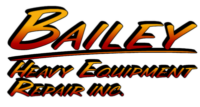Biggest Challenges in Heavy Equipment Industry
Biggest Challenges in Heavy Equipment Industry
In recent years, the heavy equipment industry has experienced tremendous growth due to increased construction projects and industrialization around the world. However, with this growth comes a set of challenges that the industry must overcome. This blog post will explore some of the biggest challenges facing the heavy equipment industry today and discuss possible solutions for a more sustainable and efficient future.
High Upfront Costs and Capital Investment
One of the biggest challenges in the heavy equipment industry is the high upfront costs associated with purchasing and maintaining heavy machinery. Construction companies and contractors typically need to make significant capital investments to acquire the necessary equipment, such as excavators, bulldozers, and cranes. These costs can be a barrier to entry for new businesses or even hinder expansion for existing ones.
To address this challenge, companies can explore alternative financing options, such as renting or leasing equipment instead of purchasing it outright. Additionally, investing in technology that improves overall equipment efficiency and reduces fuel consumption can result in substantial long-term savings.
Increasing Environmental Concerns and Regulations
Environmental concerns surrounding heavy equipment, especially in terms of their carbon emissions and impact on air quality, have become a significant challenge for the industry. Governments and environmental organizations are increasingly imposing stricter regulations on emissions standards, noise levels, and fuel consumption. Compliance with these regulations can be costly and time-consuming for manufacturers and end-users.
To meet these challenges head-on, heavy equipment manufacturers need to invest in research and development to create more sustainable machinery. This includes exploring alternative fuel sources, incorporating hybrid technologies, and utilizing advanced emission control systems. By doing so, the industry can reduce its environmental footprint and comply with evolving regulations.
Skilled Labor Shortage
Another pressing challenge in the heavy equipment industry is the shortage of skilled labor. As the industry grows, there is a rising demand for trained technicians and operators who can effectively operate and maintain heavy machinery. However, there is a significant gap between the available workforce and the skills required for these specialized roles.
To address this challenge, it is crucial for industry stakeholders to collaborate with educational institutions and vocational schools to develop training programs that equip individuals with the necessary skills. Companies can also offer apprenticeship programs to attract and retain talent, providing on-the-job training and mentorship opportunities.
Rapid Technological Advancements
While technology advancements can bring significant benefits to the industry, they also present challenges. The heavy equipment industry is constantly evolving, with new technologies being introduced regularly. This rapid pace of change can make it difficult for companies to keep up or integrate new technologies seamlessly into their operations.
To overcome this challenge, companies should invest in regular training and development programs for their employees. Staying abreast of technological advancements and actively adopting innovative solutions can help businesses remain competitive and efficient. Collaboration with technology providers can also aid in ensuring smooth integration and implementation of new technologies.
Maintenance and Downtime
Maintaining heavy equipment can be a significant challenge for companies, as breakdowns and unplanned downtime can be costly and disrupt project timelines. Regular maintenance and servicing are essential to ensure equipment longevity and minimize downtime. However, coordinating maintenance schedules and managing a fleet of machinery can be complex and time-consuming.
To tackle this challenge, investing in predictive maintenance technology can be beneficial. By utilizing sensors and data analytics, companies can monitor and predict equipment failures before they occur, allowing for proactive maintenance and reducing unplanned downtime.
Conclusion
The heavy equipment industry faces several challenges that demand proactive solutions to ensure sustainable growth and competitiveness. From high upfront costs and environmental concerns to skilled labor shortages and technological advancements, these challenges require collective efforts from manufacturers, end-users, and industry stakeholders.
By embracing alternative financing options, investing in sustainability and innovation, and addressing labor shortages through training programs, the heavy equipment industry can navigate these challenges successfully. By doing so, the industry will be well-positioned for a more efficient and sustainable future.
Got Questions? Let Us Help!
Bailey Heavy Equipment Repair, Inc. is a family-owned and -operated heavy-duty equipment repair service based in Lexington, Oregon since 1984. We specialize in providing for all of your equipment repair needs, whether it’s farm equipment, utility equipment, trucks, cylinders, or something else entirely. We offer ANSI Inspections and Dielectric testing, field repair and on-site repair, line boring services, welding and machining, hose assemblies, steel sales, and other machine products. Give us a call today for more information!
